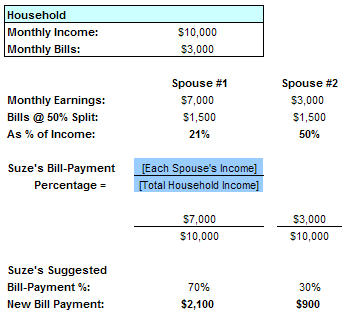I have become a big proponent of an idea I first heard from Suze Orman: If you’re in debt, and want out, then you must tell others about your debt.
I bring this up because this week my wife purchased a newsstand copy of All You magazine. I’d never heard of it before. Because “what I read” is not nearly as important to me as the fact that I just read SOMETHING, I have no problem tossing aside my manhood and flipping through a publication whose self-described audience is “Value-conscious American Women.”
(Yeah, I’ll read articles from stuff like Cosmopolitan and Woman’s Day, too. Sometimes there’s personal-finance stuff in there, which I’ll read no matter where it comes from. Other times, it’s more like reconnaisance. Us guys can get an interesting look behind enemy lines that way.)
Anyhow, in this issue of All You, there was a one-page article about a 25-year-old woman who’d piled up $20k in credit-card debt. Not much about the story (soapishly titled “I Was Hiding a Huge Secret”) caught my attention, until I hit this little snippet:
…I joked to my friends about being in the poorhouse, but because I’d landed a great public relations job, no one guessed what was going on. I never told because I was afraid people would see me as irresponsible.
One day, though, I was with my best friend, Mandi, and I just blurted out the truth. For the first time, I actually said aloud the amount I owed. It was a huge relief. Mandi, who was a loan processor for a mortgage company, reassured me that I could get my debt under control, and she offered to show me how.
I don’t know about you guys, but in my experience, folks with money problems almost always get to that point in secrecy. Read that again: Folks with money problems tend to get there in secrecy. I would contend that this is a powerful and dramatic “common feature” in today’s financial world.
We could spend days talking about why this secrecy, damaging as it so often is, plays out. It’s a cultural thing; money simply isn’t an open topic in social (and, often to a larger degree, familial) circles.
It’s human nature. Acquiring debt can hint at shortcomings, and who in their right mind wants to advertise his or her shortcomings if they don’t have to do so?
It’s a “commercial presentation” thing. Ever notice how credit-card bills arrive in discreet white envelopes, while credit advertisements can usually be spotted by your mayor’s son’s future parole officer from two blocks away? Think about the possible implications. If you’re in debt, it’s a “privacy thing,” and you’ll probably want to keep it quiet. If you’re debt-worthy, though, you want the world to know.
I could probably come up with another 10 or 12 reasons, but I’ll save the wear ‘n’ tear on your browser and eyes, and move on to the good side of all this. More from our spendthrift 25-year-old:
I’m so glad I opened up about my debt problem. Today I’m 29, and my credit rating’s stellar, my debt’s entirely gone and I’m considering starting my own public relations business.
Here’s where we recite that old tenet about facing your problems head-on: You pretty much have to. No one else will do it for you, right? For me, a big part of facing my debt head-on was making it a public affair. (In the case of It’s Your Money and this here blog, well, that’s about as public as you can get.)
I needed the opportunity for learning that this site provided me. I darn sure needed the accountability. I needed the responses from readers, some who’d already been where I was, and who years ago had found the EXIT sign, and some who were right there with me, practically in lock-step, from Day One.
Not everyone needs these things, of course. Waging a successful war on debt can be done entirely in private. But given the situations I’ve seen in my life, and the people whose lives I’ve seen ruptured by debt, I sure don’t like the odds.
This is why it’s always made me happy to see new blogs popping up — the ones where the authors have made a decision to move forward in their money lives, to vanquish their debts and whatever other baggage they might have, and to generally get on with kicking life’s butt. I am here to proclaim that it’s a worthy mission.
There are a host of other goal-oriented bloggers who see fit to make their debt paydowns public, and I commend each one of them. I do still try to keep up with as many as I can. Because I’ve been where they are. By making their debts, their goals, and their actions public, they’ve turned vague “ought-tos” into unmistakable, concrete targets.
They’re asking for an audience. They’re asking for accountability. This goes against pretty much everything our society preaches regarding money and debt. And by gosh, it takes big-time courage.
If you’re thinking about doing something like this, about starting up a WordPress blog or LiveJournal or something like that to help you get your money straight, I say “Fire it up.” There’s a great deal to be gained when you open up the windows and let some light in.
Make your debt, and your task, known.


